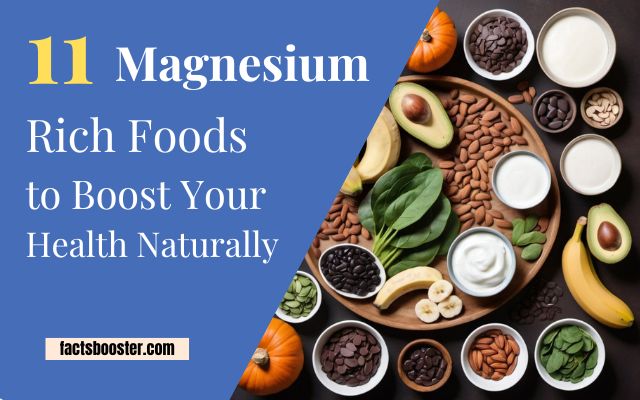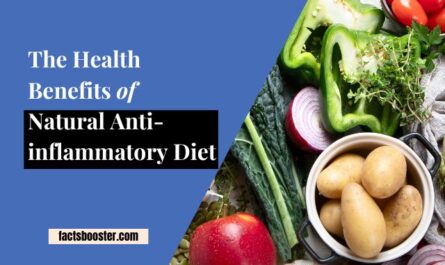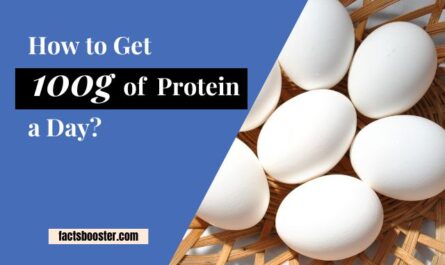Magnesium stands as an essential mineral, underpinning several physiological functions- from bone strength to regulating muscle and nerve operations. Sadly, a large segment encounters diets deficient in magnesium, risking adverse health consequences. Embracing magnesium-rich foods not only helps bridge this nutritional gap, but also amplifies overall well-being.
Key Takeaways:
- Essential Mineral: Magnesium’s critical role in health.
- Dietary Deficiency: Prevalence of magnesium inadequacy.
- Health Enhancement: Benefits of magnesium-enriched diets.

Magnesium Rich Foods
Including magnesium-rich foods in your diet is essential for health. These foods offer a natural way to fulfill your daily magnesium needs, crucial for overall wellness. Upcoming sections will delve into specific magnesium sources to enhance your nutrient-rich diet.
1. Almonds
Beyond mineral intake, they provide a plethora of secondary nutritional benefits, including heart-healthy fats and protein. To enrich your nutrient-rich diet, consider adding these versatile nuts to snacks, meals, or as part of your health supplements. Whether blended into smoothies, sprinkled over salads, or enjoyed as a standalone snack, almonds can significantly contribute to meeting your daily magnesium and mineral intake goals. (1)
2. Spinach
This leafy green, rich in dietary magnesium and other nutrients, blends seamlessly into various dishes. Its versatility enhances not only mineral intake but also offers vitamins like A and C.
3. Pumpkin seeds
These seeds, a powerhouse of nutrients, offer more than just magnesium; they include healthy fats, antioxidants, and fibers. Sprinkling them over salads or blending into smoothies can effortlessly boost your nutrient-rich diet. Their versatility ensures they can be a savory snack or a sweet treat, making them a perfect addition to your health supplements routine. (2)
4. Black beans
Consider them in salads, soups, or wraps to enrich your nutrient-rich diet. Their inclusion supports a well-rounded approach to wellness.
Read more:
5. Dark chocolate
Seek out high cocoa content for peak health benefits. However, moderate consumption is key due to its high calorie content.
6. Quinoa
This grain integrates seamlessly into your diet, whether tossed into salads for a nutritious boost or used as a base for a hearty, nutrient-rich power bowl. An added benefit, especially for those with dietary restrictions, is its gluten-free status, offering a versatile and healthful choice for everyone seeking to enrich their mineral intake.
7. Avocados
These fruits, rich in monounsaturated fats, aid in managing cholesterol. Try incorporating them into salads or as spreads to enhance your nutrient-rich diet.
8. Cashews
They are rich in heart-healthy monounsaturated fats, contributing to dietary magnesium and overall wellness. To enhance your meals, try adding these nuts as a crunchy topping on salads or blending them into smoothies for a nutritious boost. Their versatility extends beyond snacks; they can be incorporated into various dishes, elevating the mineral intake in your diet. Cashews not only offer health supplements through their magnesium benefits but also support a balanced diet with their array of nutrients.
9. Mackerel
Whether grilled or baked, this fish fits perfectly into a nutrient-rich diet. Its contribution to heart health cannot be overstated, emphasizing the importance of incorporating mackerel into your meal rotation. (3)
10. Swiss chard
This leafy green also shines with antioxidant properties, defending against cellular damage. For a dietary boost, consider adding it to smoothies, salads, or sautéed dishes, incorporating a versatile approach to your health supplements routine.
11. Bananas
Magnesium and potassium-rich, bananas offer more than just a convenient snack option. Their nutrient profile supports muscle function, making them an ideal choice for breakfasts and snacks alike.
Benefits of a Magnesium-Rich Diet
A magnesium-rich diet plays a pivotal role in supporting overall health, notably by diminishing disease risk and bolstering vital bodily functions. Emphasizing dietary magnesium, drawn from magnesium-rich foods, stands crucial in warding off deficiency. These nutrient-packed selections not only foster a nutrient-rich diet but advance our health in multifaceted ways.
1. Stress reduction and improved sleep quality
Magnesium plays a pivotal role in mitigating stress and enhancing sleep quality by regulating neurotransmitter function, which calms the nervous system and prepares your body for rest. Foods like spinach, almonds, and pumpkin seeds are not only abundant in this essential mineral but also promote relaxation and better sleep patterns. (4)
2. Improved muscle function and energy levels
Magnesium plays a crucial role in both muscle function and energy metabolism. By facilitating the conversion of food into energy, it ensures your muscles function smoothly, preventing cramps and fatigue. Incorporating magnesium-rich foods like almonds, spinach, and black beans into your diet can greatly enhance your energy levels and muscle health. Experts suggest an optimal daily magnesium intake to maintain these functions at their best.
3. Enhanced bone health
Magnesium has proven vital for bone health, enhancing density. Studies consistently link higher dietary magnesium with better bone mineral density. For optimal benefits, integrate magnesium-rich foods with key nutrients like calcium and vitamin D.
4. Better heart health
Magnesium has been linked to improved heart health and may mitigate risks of cardiovascular disease. Studies have pointed out the necessity for further inquiry into its benefits. Enriching your diet with diverse magnesium sources like leafy greens and nuts is advisable. (5)
Read more:
Types of Magnesium Supplements
Variety abounds in magnesium supplements, each type catering to unique health prerequisites. Preference guides selection, hinging on factors such as absorption rates and specific health goals. Foremost, healthcare professionals’ advice is paramount before initiating any supplement protocol.
Magnesium glycinate
Ideal for those seeking enhanced stress relief and improved sleep quality, this form proves especially beneficial for maintaining balanced mineral intake.
Magnesium citrate
Ideal for individuals seeking a gentle, effective option, its consumption should be moderated due to its potential laxative effect at elevated doses.
Magnesium oxide
Despite a lower absorption rate than other forms, it becomes the go-to option in specific conditions requiring targeted relief.
Magnesium chloride
Users appreciate its versatility, as it can be administered both orally and topically. A significant advantage is its high bioavailability, ensuring efficient absorption into the body.
Magnesium lactate
Often sought by those needing to manage their mineral intake without discomfort, it finds additional utility in enhancing various food products. This versatility makes it a popular choice among diverse groups seeking to improve their nutrient-rich diet.
Magnesium taurate
This fusion aids in heart rhythm stabilization and blood pressure regulation. Ideal for individuals focused on heart health, magnesium taurate stands as a premier choice.
How to Maximize Magnesium Absorption
To enhance magnesium absorption, pair foods rich in this mineral with sources of vitamin D and calcium. This combination will boost your nutrient intake significantly. However, excessive caffeine and alcohol can impede magnesium’s benefits. Balancing these factors is key for optimal health.
Combining magnesium-rich foods with other nutrients
Vitamin D enhances magnesium absorption. Including fatty fish or egg yolks in your meals can boost this effect. Meals combining salmon with leafy greens or a spinach omelet do wonders. Calcium and magnesium balance each other; dairy products, fortified plant milks, and nuts and seeds make a powerful duo.
For optimal absorption, pair iron-rich foods like lentils with magnesium-packed pumpkin seeds. This holistic approach not only maximizes mineral intake but turns every meal into a nutrient-rich powerhouse for your health.
Avoiding factors that hinder magnesium absorption
Maintaining awareness of certain inhibiting factors is crucial to bolster your dietary magnesium. Excessive consumption of alcohol can significantly decrease magnesium absorption. Limit alcohol intake to enhance mineral uptake.
Similarly, a high intake of phosphorus-rich foods like soda may impede your body’s ability to absorb magnesium effectively. Opt for water or magnesium-rich beverages instead. Additionally, refined sugars not only deplete the body’s magnesium levels but also reduce the absorption rate of this vital nutrient.
Choosing foods low in added sugars will therefore not only improve your overall health but also your magnesium status. Excessive caffeine consumption can also lead to increased magnesium excretion.
Moderating caffeine intake will help in retaining more magnesium. Lastly, ensure a balanced intake of calcium-rich foods, as an imbalance can affect magnesium absorption. Striving for a diet that limits these factors will aid in maximizing the beneficial impact of magnesium-rich foods on your health.
Lifestyle changes to improve magnesium levels
- Reducing alcohol intake and managing stress can elevate your mineral intake significantly.
- Dietary improvements play a crucial role in enhancing magnesium levels.
- Regular check-ups help in overseeing your nutrient-rich diet’s effectiveness.
Conclusion
Magnesium enhances health, supports bodily functions, and prevents deficiencies. Prioritize nutrient-rich diets, consider your intake, and seek advice from healthcare providers.


